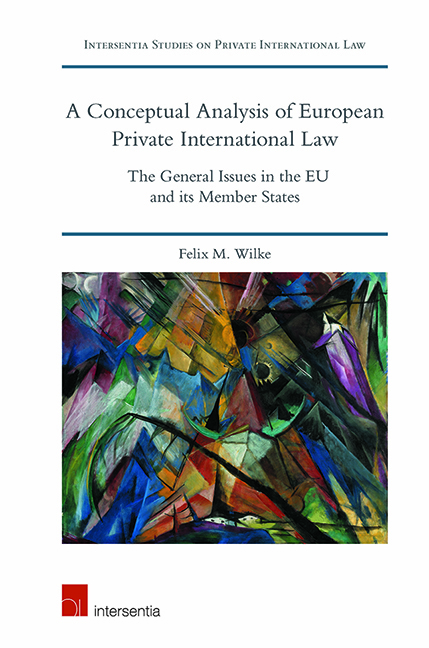 A Conceptual Analysis of European Private International Law
A Conceptual Analysis of European Private International Law Chapter 1 - Method
from PART I - FOUNDATIONS
Published online by Cambridge University Press: 30 March 2019
Summary
Comparative law is a risky discipline. There is a danger of at least prima facie doubtful endeavours such as comparing New Zealand and German adoption laws, or Uzbek securities trading law with its Swiss counterpart. Then there are numerous, perhaps countless, pitfalls in the comparative process itself. In view of these issues, this chapter addresses three aspects. First, the reasonableness of approaching the present topic in a comparative way. Second, the extent to which this book follows the traditional notion of comparative law, the extent to which it does not, and why not. Third, the attempts that will be made in order to avoid some of the subject'Ss pitfalls and why falling into some of them – horribile dictu – would not cast doubts on the book as a whole.
Radbruch'Ss observation that “sciences which have to busy themselves with their own methodology usually are sick sciences” may or may not be true. If one emphasises the compulsory aspect (“have to”) in the sense that those sciences do little else, it is easier to agree with Radbruch than in general, where occupation with method and methodology is a constitutive element of the scientific nature of a discipline. Even though there are excellent examples of comparative private international law, i.e. the comparison of private international law rules, questions of comparative law are mostly (and mostly without making mention of it) discussed in relation to comparing substantive rules. Thus, it may be of some general interest to analyse features of comparative private international law here. In order to be understood as correctly as intersubjectively possible, some remarks as to methodological preconceptions are indispensable.“Some”, however, is to be taken literally; the debate on methods in comparative law has been getting out of hand, it would be impossible in this context to address anything but select questions.
COMPARATIVE PRIVATE INTERNATIONAL LAW IN THE EUROPEAN UNION
COMPARATIVE PRIVATE INTERNATIONAL LAW
The “intimate”, almost “symbiotic” relationship between private international law and comparative law has oft en been noted.
- Type
- Chapter
- Information
- A Conceptual Analysis of European Private International LawThe General Issues in the EU and its Member States, pp. 13 - 40Publisher: IntersentiaPrint publication year: 2019


